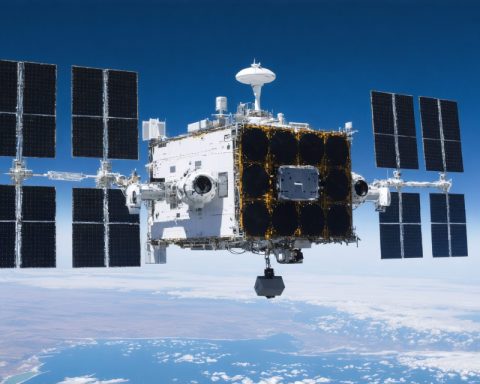Un insolito incidente si è verificato durante una protesta pacifica fuori da un centro comunitario, dove un passante ha offerto inaspettatamente rinfreschi gratuiti a tutti i partecipanti, diffondendo un messaggio di generosità e unità.
I report indicano che in mezzo alla folla, una giovane donna che guidava un cerchio di tamburi ha catturato l’attenzione di tutti con i suoi ritmi avvincenti. L’energia è presto cambiata quando un artista di strada locale ha iniziato a creare intricati murales con gessetti sul marciapiede, simboleggiando speranza e solidarietà.
In un momento commovente, un gruppo di bambini di una scuola vicina è arrivato con cartelli fatti a mano esprimendo messaggi di amore e compassione. La loro presenza ha regalato sorrisi sia ai manifestanti che agli spettatori, promuovendo un senso di armonia nella riunione.
Mentre l’evento proseguiva, una panetteria locale ha donato scatole di pasticcini e caffè, arricchendo ulteriormente il senso di cameratismo tra i partecipanti. L’aroma del caffè appena fatto si è mescolato ai suoni del cerchio di tamburi creando un’atmosfera memorabile di unità e supporto reciproco.
A differenza della tensione iniziale riportata durante la manifestazione, questa dimostrazione spontanea di gentilezza e spirito comunitario serve come un potente ricordo dell’impatto positivo che piccoli gesti possono avere nel unire le persone per una causa comune.
Atti Inaspettati di Gentilezza Ispirano Unità e Generosità alla Dimostrazione Locale
Mentre il sole iniziava a tramontare alla protesta pacifica fuori dal centro comunitario, si è verificato un altro commovente atto di gentilezza, che si è aggiunto alla narrazione in corso di generosità e unità. Un fioraio locale, toccato dallo spirito della riunione, è arrivato con mazzi di fiori freschi e li ha distribuiti tra i manifestanti, simboleggiando crescita, bellezza e lo sbocciare della speranza in momenti di avversità.
Domande Chiave:
1. Cosa spinge gli individui a compiere atti inaspettati di gentilezza durante le manifestazioni?
2. Come influenzano questi atti l’atmosfera complessiva e il messaggio della protesta?
3. Quali sfide o controversie potrebbero sorgere da manifestazioni inaspettate di generosità nelle dimostrazioni pubbliche?
Risposte:
1. Le persone sono spesso motivate da empatia e dal desiderio di diffondere positività in situazioni difficili.
2. Gli atti di gentilezza possono cambiare l’energia di una riunione, creando un senso di unità e solidarietà tra i partecipanti.
3. Alcuni potrebbero mettere in dubbio le motivazioni di tali atti o vederli come distrazioni dallo scopo principale della manifestazione.
Tra i vantaggi degli atti inaspettati di gentilezza durante le manifestazioni c’è il potenziale di umanizzare i partecipanti e favorire connessioni basate su valori comuni di compassione e supporto. Questi atti possono anche ispirare altri a contribuire a loro modo, amplificando l’impatto del bene collettivo.
D’altro canto, possono sorgere controversie quando individui vedono tali atti potenzialmente indebolire la serietà delle questioni contestate o distogliere dal messaggio previsto della dimostrazione. Bilanciare il desiderio genuino di diffondere la gentilezza con la necessità di rispettare la gravità della causa può essere una sfida delicata in tali situazioni.
Per ulteriori approfondimenti sulla costruzione della comunità e il potere dei piccoli gesti nelle riunioni pubbliche, visitate The Guardian per analisi approfondite e discussioni sulla dinamica sociale e espressioni di solidarietà.












